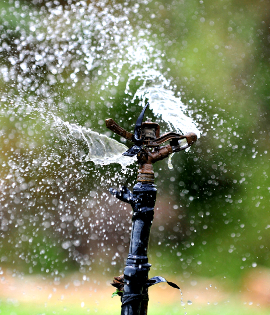Thinking deeper on food trade could spring water-savings
 Billions could be saved by better consideration of water resources in relation to the global food trade, research suggests.
Billions could be saved by better consideration of water resources in relation to the global food trade, research suggests.
A new study says huge amounts of water are wasted or used inappropriately to produce foods in certain climatic conditions.
For instance; it takes 2.700 litres of water to produce 1 kilo of cereals in Morocco, while the same kilo produced in Germany uses up only 520 litres.
“Agriculture accounts for 70 percent of our global freshwater consumption and therefore has a huge potential to affect local water scarcity,” lead author Anne Biewald from the Potsdam Institute for Climate Impact Research says.
The water used in the production of agricultural export goods is called the ‘virtual water trade’.
So far, the ‘virtual water’ concept has been used only to identify the vague regional water sources, but relies on national or even global averages.
“Our analysis shows that it is not the amount of water that matters, but whether global food trade leads to conserving or depleting water reserves in water-scarce regions,” Biewald says.
The study combined biophysical simulations of virtual water content in crop production, with a number of agricultural land and water simulations. This approach was able to identify the positive and negative impacts on water scarcity that international trade of crops, livestock and feed creates.
The method also provided analyses on a localised level, to account for different climatic zones within large countries such as Australia or India. Previously, such countries were only evaluated through average national water levels.
“Local water scarcity is reduced through imports of agricultural goods, and therefore saving regional agricultural production particularly in parts of India, Morocco, Egypt and Pakistan. But scarcity is exacerbated by exports in parts of Turkey, Spain, Portugal, Afghanistan and the US," Dr Biewald says.
“In contrast to popular perception, global food trade and the related virtual water flows indeed offer the possibility of relieving water stress and making global water use more efficient,” said co-author Hermann Lotze-Campen, co-chair of PIK´s research domain Climate Impacts and Vulnerabilities.
The study suggests the world may benefit from defining regions which specialise in the most advantageous products, and exporting them to others.
“When it comes to the implementation of policy instruments which affect global trade – such as trade liberalization, import taxes or agricultural subsidies – decision-makers have to take into account the indirect effects on water as well. To connect international food trade to regional water scarcity can contribute to advance this debate.”








 Print
Print